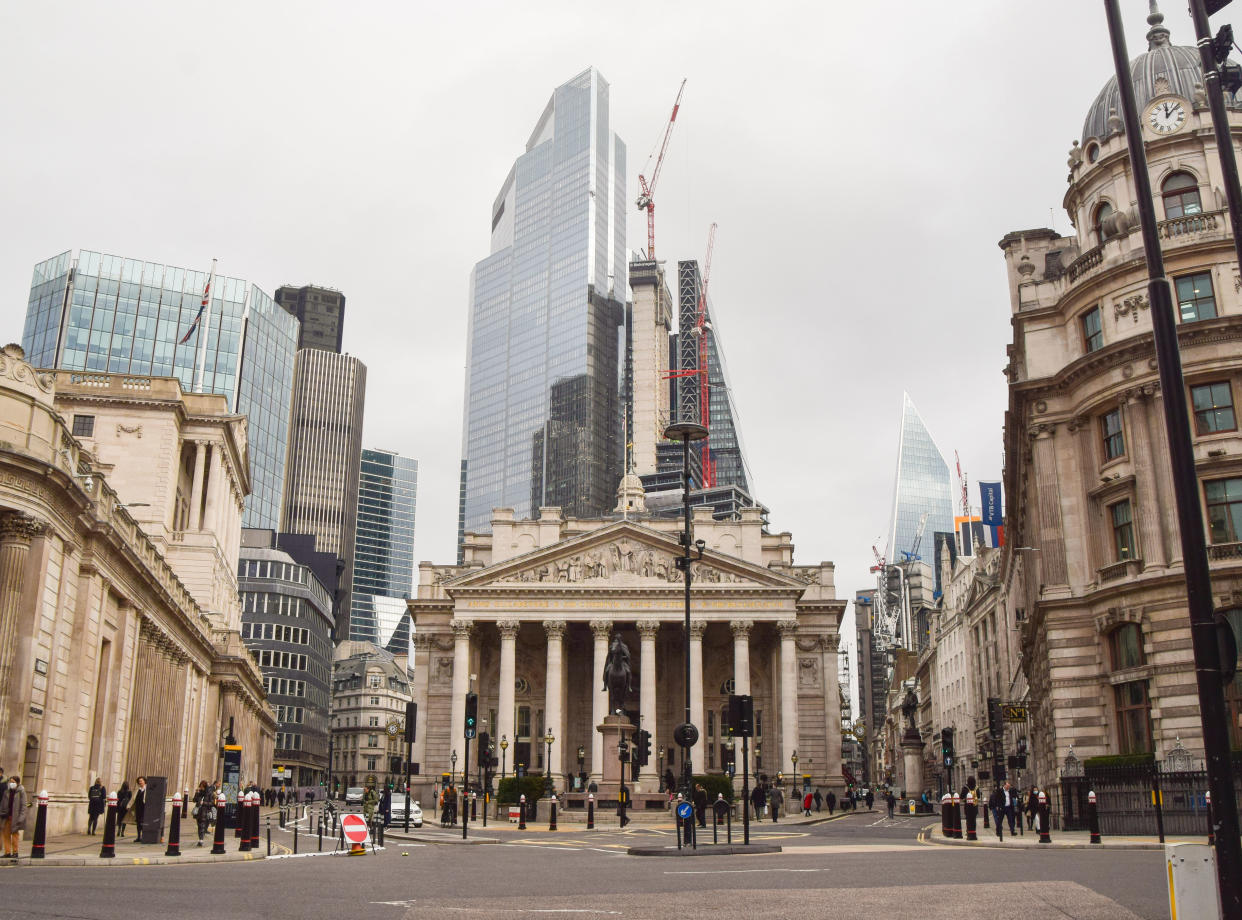Bank of England raises interest rates to 0.25% amid soaring inflation

The Bank of England (BoE) has hiked UK interest rates from record lows of 0.1% to 0.25% for the first time since the start of the pandemic in a bid to combat soaring inflation.
The Monetary Policy Committee (MPC) voted by a majority of 8-1 to take action amid pressure from the International Monetary Fund (IMF), who discouraged it from any further delays.
It also voted 9-0 to maintain the amount of quantitative easing at £895bn ($1.2tn).
UK inflation soared to its highest level in more than a decade last month, climbing to 5.1%, according to the Office for National Statistics.
This was significantly more than the Bank of England’s 2% target and well above the expectations of 4.5%, thanks to the rising cost of clothing, fuel and second-hand cars.
The soaring inflation figure, reported on Wednesday, raised eyebrows as to whether Threadneedle Street would hike interest rates despite the rapid spread of the new Omicron variant. As inflation hit a rate the Bank had not expected to be reached until the spring, this has seemed to outweigh coronavirus concerns.
"Bank staff expect inflation to remain around 5% through the majority of the winter period, and to peak at around 6% in April 2022, with that further increase accounted for predominantly by the lagged impact on utility bills of developments in wholesale gas prices," it said.
BoE governor Andrew Bailey, deputy governors Ben Broadbent, Jon Cunliffe and Dave Ramsden, chief economist Huw Pill, and external members Michael Saunders, Jonathan Haskel, and Catherine L Mann all voted for the hike. Only Silvana Tenreyro, the fourth external member, voted against the raise.
Read more: Food and fuel prices push UK inflation to 10-year high
The UK's main interest rate has been at 0.1% since the pandemic began, having been set at 0.75% pre-pandemic. A rise to 0.25% now marks been the second lowest the bank has ever set.
Analysts have said that they expect the rate to be hiked to pre-pandemic levels in the next 18 months as the economy resumes a more steady course.
Meanwhile, the Bank revised down its forecast for growth in the fourth quarter by 0.5%, leaving GDP around 1.5% below its pre-pandemic level.
The news follows comments from Michael Saunders earlier this month, one of the more hawkish officials who voted to increase rates in November, who said it was best to wait for more information on the new strain before making a decision on UK interest rates.
Read more: UK private sector growth slows as Omicron hits consumer services spending
He said he wanted to assess the data on the impact on the economy, before deciding how to vote.
“At present, given the new omicron COVID variant has only been detected quite recently, there could be particular advantages in waiting to see more evidence on its possible effects on public health outcomes and hence on the economy,” he said at the time.
Watch: Will interest rates stay low forever?
The pound (GBPUSD=X) jumped by almost a cent against the US dollar on the back of the news, hitting $1.335, a rise of 0.7%. This is the currency's highest level in more than two weeks.
"The Bank of England’s decision to raise interest rates was surprising given mounting uncertainty over the economic impact of the Omicron variant. While today’s rate increase may have little effect on most firms, many will view this as the first step in a longer policy movement – not as a partial reversal of last year’s cut," Suren Thiru, head of economics at the British Chambers of Commerce (BCC), said.
"While policymakers are facing a tricky trade-off between surging inflation and a stalling recovery, with the current inflationary spike mostly driven by global factors, higher interest rates will do little to curb further increases in inflation."
Read more: UK private sector growth slows as Omicron hits consumer services spending
The news comes as the US Federal Reserve announced it was speeding up the taper of its pandemic financial support to $30bn a month last night, adding that it expects three interest rate rises next year, and three in 2023.
Hinesh Patel, portfolio manager at Quilter Investors, said: “The Federal Reserve’s actions yesterday created a conundrum for the BoE. If the BoE did not match direction of travel over the longer-term, an even weaker sterling would have compounded inflation further to make the cost of living crisis even more acute."
Watch: What is inflation and why is it important?


